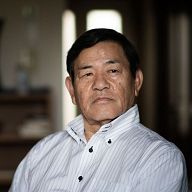People sentenced to death cannot have any contact with others facing the same sentence or with other prisoners. Seven penal institutions have dedicated cells for those awaiting execution: Sapporo, Sendai, Tokyo, Nagoya, Osaka, Hiroshima, and Fukuoka. The Tokyo facility contains roughly half of these cells.
Accommodation. Prisoners sentenced to death remain in solitary confinement in cells measuring around five square metres (a little less than four tatami mats). Their windows are smaller than those found in normal cells and let very little natural light in. The field of vision is obstructed by bars and gratings. The cells are equipped with a sink, a commode and a desk. The prisoner is permitted to keep a limited number of personal items. Most facilities have neither heating nor an adequate ventilation system.
The cell is monitored round the clock on CCTV. The guards control the lights, which are turned on between 7 a.m. and 9 p.m. and cannot be on outside these times. The FIDH reported that “lighting may be dimmed at night but there is never complete darkness.”
According to former guard Toshio Sakamoto, “there is nothing for them to see out their window except the corridor. They are not permitted to speak to anyone, and about the only day-to-day variations they encounter are differences in the contents of their meals.“
Hygiene. Prisoners sentenced to death can shower three times a week in summer and twice a week the rest of the year. They are allowed no more than 15 minutes for a shower, including time spent undressing and getting dressed again. It is, in theory, possible to shower after exercising. In practice, the showers are not accessible every day.
Food. Prisoners sentenced to death receive three meals per day in their cells. These vary in both quality and quantity. The Japanese regulations state that “staple food is made up of 70 percent of rice and 30 percent of barley. The calorific value of staple food for convicts is graded according to individual work assignments. […] The calorific value of side dishes is fixed as 1,020 kcal regardless of individual work assignments.” The administration allocates a supplementary 60 yen (around $0.55) to special meals (birthdays and national holidays). An additional 250 yen (around $2.30) is allotted for New Year’s Day. The lack of fresh fruit and vegetables can lead to vitamin deficiencies.
Prisoners may buy food and essentials from the commissary, but the majority of them cannot afford it. Their families can, in theory, bring them food, however the FIDH noted in 2003 that the guards did not allow this.
Activities and work. Prisoners sentenced to death spend almost the whole day in their cells. They must remain seated and cannot move without the guards’ permission. From waking to the evening inspection, they may not speak, make any noise, walk around their cell or look around. They only leave in order to shower (15 minutes, two to three times a week), to exercise (30 minutes, two to three times a week) and to receive visitors. Outside of visits from their relatives and solicitors, they only have contact with prison guards. The designated concrete exercise area measures around 10m2. Prisoners cannot wear shoes and go out barefoot or in slippers. They can play with rubber balls. Prisoners sentenced to death do not have access to computers or printers, which are normally used to help build a defence and print out the necessary legal documents. They may not watch television or do any activities. They have the right to three books on the condition that the administration approves them. They can listen to the radio but are not permitted to choose the station.
People whose death sentences are under appeal work in the same conditions as other prisoners. These tasks may be in production (sewing, paper products, etc.) or in general prison maintenance work (cooking, cleaning, laundry). They can earn up to 5,000 yen (around $46) per month.
Discipline. The days of people sentenced to death follow the same structure as those of other prisoners. The disciplinary and security measures implemented are, as a general rule, extremely restrictive. Incarcerated people must conform to a certain way of walking, talking, eating, sitting and sleeping. Any breach in conduct is subject to sanctions.












